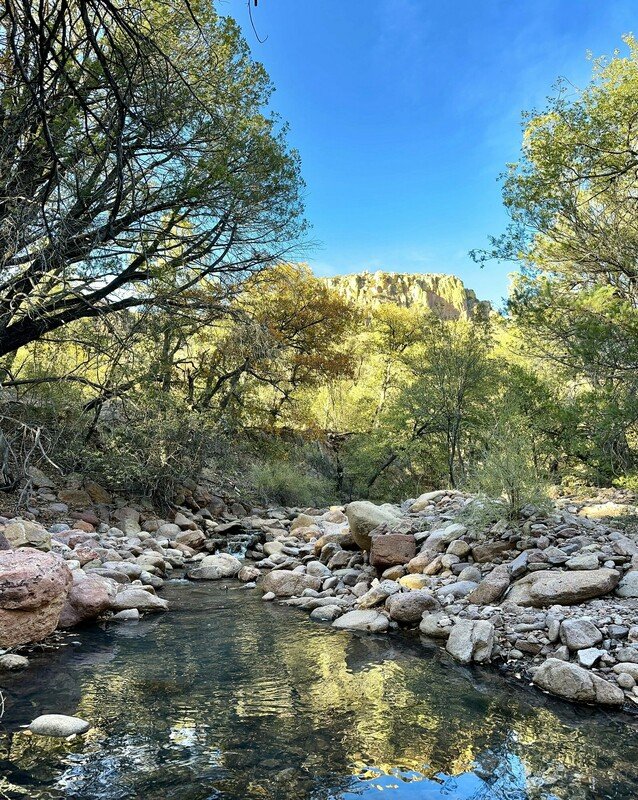For Immediate Release, August 19, 2024
|
Contact: |
Laiken Jordahl, Center for Biological Diversity, (928) 525-4433, [email protected] |
Lawsuit Targets New Forest Service Roads in Jaguar, Mexican Spotted Owl Habitat in Arizona
TUCSON, Ariz.— Environmental groups filed a lawsuit today challenging the U.S. Forest Service’s plan to build new roads and allow increased motorized access through three sensitive canyons in the Chiricahua Mountains in southeastern Arizona. Roads in these remote canyons would put endangered wildlife at risk from noise and other harassment, increase the risk of fire and pollute clean water.
Today’s lawsuit, filed in U.S. District Court in Tucson, seeks to protect wildlife in sensitive and remote riparian habitat. Nearly 3 miles of proposed new roads would re-open access to about 20 miles of forest roads that are currently closed.
“These fragile canyons in the Chiricahua Mountains are a sanctuary for wildlife and they’re key to the recovery of endangered jaguars and Mexican spotted owls,” said Laiken Jordahl, Southwest conservation advocate at the Center for Biological Diversity. “The Coronado National Forest’s deeply flawed decision once again puts the interests of hunters and off-road enthusiasts over the protection of endangered species and our public lands.”
The lawsuit says the Forest Service and the U.S. Fish and Wildlife Service violated the Endangered Species Act by failing to comply with jaguar and spotted owl recovery plans, as well as the management plan for Coronado National Forest, in approving the road construction plan.
“The Forest Service’s harmful plan bypasses law and policy directives put in place expressly to mitigate the dual climate and biodiversity crises we now face every day in Arizona,” said Wild Arizona’s executive director Kelly Burke. “Instead it unnecessarily focuses new and expanded motorized access directly in just those most essential of places: diminishing riparian habitat, areas sustaining endangered species, fire-vulnerable forests, and scarce fresh waters.”
The agencies relied on a flawed 2022 biological opinion that failed to adequately address the threats posed by allowing vehicles into endangered species habitat in the Chiricahuas. The Service’s analysis claimed the new roads would not “substantially alter overall visitation” in the area, despite the fact that the project’s purpose is to increase motorized access to these remote places.
“This continues a trend by current leadership on the Coronado National Forest, who, under the guise of access, favor motorized recreation above protecting rare and endangered species,” said David Hodges of Natural Allies. “This is the same leadership who approved 20 miles of dirt bike trails within critical habitat designated for the protection of jaguars.”
For years the Chiricahua Mountains have been home to Sombra, one of only two known jaguars in the United States. The introduction of new roads and the hound hunting, wood cutting and other disturbances that would result is likely to drive any jaguars in this area from their habitat.
“Jaguars and other sensitive wildlife require quiet, remote places free of excessive human disturbances” said Aletris Neils, Ph.D., executive director of Conservation CATalyst. “These canyons are crucial corridors for everything from predators to pollinators, and they deserve our continued protection.”
In June the Center for Biological Diversity, Sky Island Alliance and the Chiricahua Regional Council petitioned the Forest Service to designate 5,500 acres in one of these canyons as the Izęę’ Bich’ilwozh (Medicine Canyon) Zoological-Botanical Area. The White Mountain Apache Tribe’s cultural preservation office urged the Forest Service to protect the zoological-botanical area and to avoid building roads that would increase motorized traffic.
“The Chiricahua Regional Council supports this suit because it seeks to accomplish two very important things. Firstly, if successful, it will protect several areas of the Chiricahuas that contain high-quality intact habitats with wilderness characteristics. Secondly, and equally important, it will preserve areas in the region for quiet recreation,” said Dirk Sigler, president of the Chiricahua Regional Council. “The introduction of roads into these areas of the Chiricahuas is not in the interest of what a majority of the public wants. Planners at the Coronado National Forest are ignoring their own surveys. Most people seek quiet recreation when they go out onto their forest lands. This lawsuit is an effort to protect that. If road construction is allowed to proceed, these remote canyons will be severely compromised by the intrusion of motorized traffic.”
The area’s exceptional biodiversity includes bears, coatimundis, bobcats, Mexican spotted owls, golden eagles, jaguars and elegant trogons. This portion of the Chiricahuas supports more than 100 Arizona Game and Fish species of concern and many rare and culturally significant species of plants.

The Center for Biological Diversity is a national, nonprofit conservation organization with more than 1.7 million members and online activists dedicated to the protection of endangered species and wild places.

